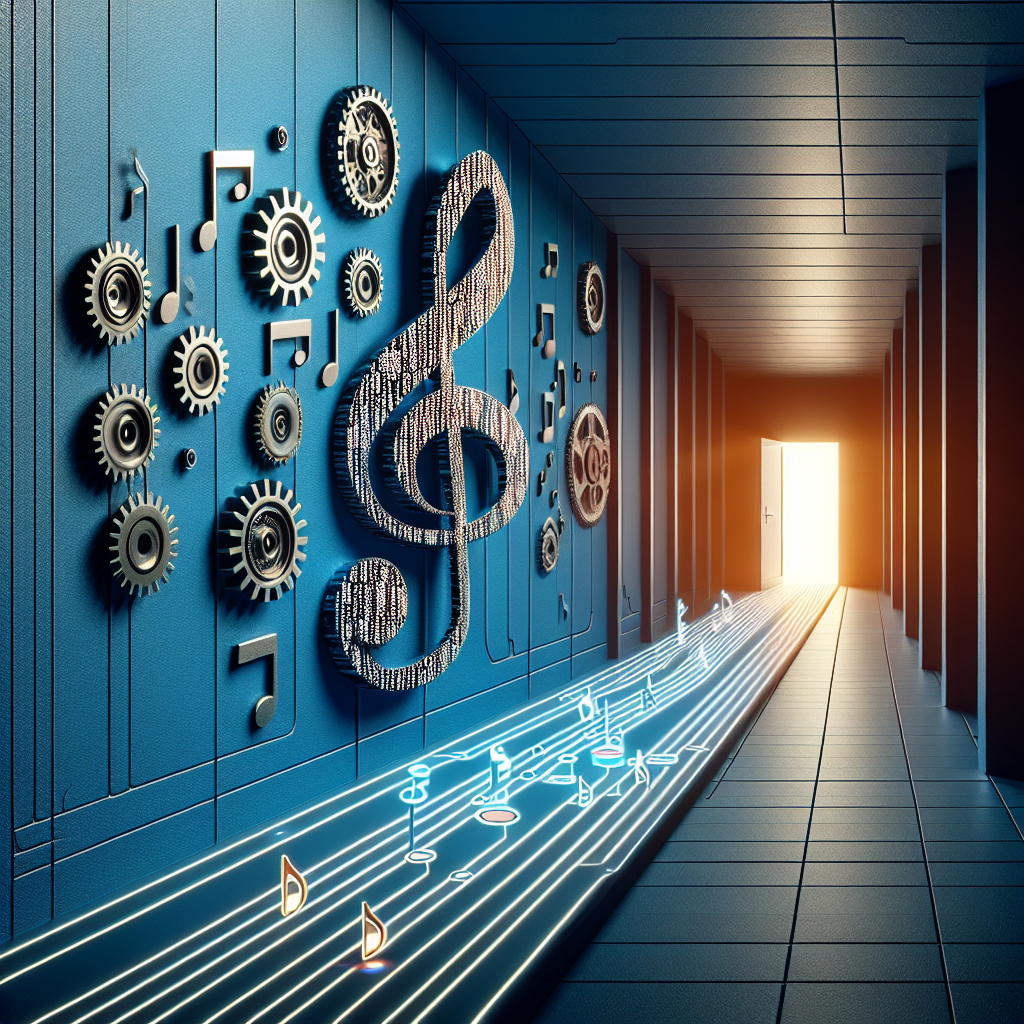Artificial Intelligence (AI) has been making waves in various industries, and the music industry is no exception. AI-driven music composition is revolutionizing the way music is created, offering new opportunities for musicians, producers, and music enthusiasts. However, with these opportunities come challenges that need to be addressed to fully harness the potential of AI in music composition.
Challenges in AI-Driven Music Composition
1. Lack of Originality: One of the main challenges with AI-driven music composition is the issue of originality. AI algorithms are trained on existing music data, which can lead to the generation of music that sounds too similar to existing songs. This lack of originality can hinder the creative process for musicians and lead to accusations of plagiarism.
2. Emotional Expression: Music is a form of emotional expression, and one of the challenges of AI-driven music composition is capturing the emotional nuances that make music resonate with listeners. While AI algorithms can analyze music data and generate melodies and harmonies, they may struggle to convey the depth of emotion that human musicians can.
3. Copyright Issues: Another challenge in AI-driven music composition is copyright issues. Since AI algorithms are trained on existing music data, there is a risk of infringement if the generated music closely resembles existing songs. This can lead to legal complications and disputes over ownership of the music.
4. Bias in Data: AI algorithms are only as good as the data they are trained on. If the training data is biased towards a certain genre or style of music, the generated music may lack diversity and originality. It is important to address bias in the training data to ensure that the AI algorithms can generate a wide range of music styles.
Opportunities in AI-Driven Music Composition
1. Creativity and Innovation: Despite the challenges, AI-driven music composition offers new opportunities for creativity and innovation in music production. AI algorithms can generate music quickly and efficiently, allowing musicians to explore new ideas and experiment with different styles and genres.
2. Collaboration: AI can be used as a tool for collaboration between human musicians and AI algorithms. Musicians can use AI-generated music as a starting point for their own compositions, adding their own creative input to the process. This collaborative approach can lead to new and exciting musical creations.
3. Personalization: AI-driven music composition can also be used to personalize music for individual listeners. By analyzing listener preferences and feedback, AI algorithms can generate music that is tailored to the tastes of each listener. This personalized approach can enhance the listening experience and create a deeper connection between the listener and the music.
4. Music Discovery: AI algorithms can also be used to discover new music and artists. By analyzing music data and identifying patterns and trends, AI algorithms can recommend new music to listeners based on their preferences. This can help music enthusiasts discover new artists and genres that they may not have come across otherwise.
FAQs
Q: Can AI algorithms compose music on their own?
A: AI algorithms can generate melodies, harmonies, and rhythms based on existing music data, but they may struggle to capture the emotional nuances and creativity of human musicians. AI algorithms are best used as a tool for collaboration between human musicians and AI.
Q: How can AI algorithms be trained to generate diverse music styles?
A: To train AI algorithms to generate diverse music styles, it is important to use a diverse range of music data in the training process. By exposing the algorithms to a wide variety of music genres and styles, they can learn to generate music that is more diverse and original.
Q: Are there any ethical concerns with AI-driven music composition?
A: There are ethical concerns with AI-driven music composition, particularly around issues of copyright infringement and bias in data. It is important to address these concerns and ensure that AI algorithms are used responsibly and in compliance with copyright laws.
Q: How can musicians benefit from AI-driven music composition?
A: Musicians can benefit from AI-driven music composition by using AI algorithms as a tool for creativity and innovation. AI algorithms can help musicians explore new ideas, experiment with different styles, and collaborate with other musicians to create new and exciting music.
In conclusion, AI-driven music composition presents both challenges and opportunities for the music industry. By addressing the challenges of originality, emotional expression, copyright issues, and bias in data, we can fully harness the potential of AI in music composition. With the opportunities for creativity, collaboration, personalization, and music discovery, AI-driven music composition has the potential to revolutionize the way music is created and enjoyed.

